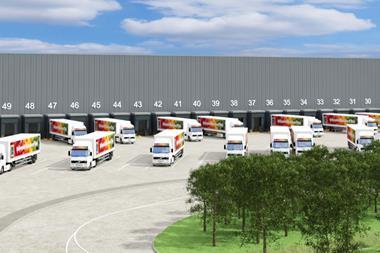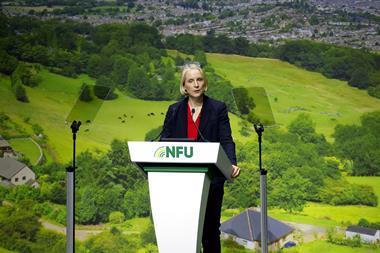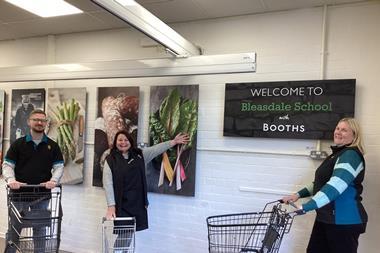Wouldn’t it be great to employ staff who never take time off, never get sick or pregnant, and work 24 hours a day - for absolutely nothing?
If they lack a little personality, robotic stores have plenty of other things going for them, says Sandy Douglas, the first independent retailer to test shop-sized vending machines in the UK.
“There’s no shrinkage, no labour costs and you can put them anywhere.”
Armed with cash from a private investor for five robotic stores in Darlington, Douglas’ ultimate aim is to build a 50-strong chain across the north east in the next three years.
But is the business case sound?
At £55,000 a time, the machines are not cheap and weekly sales at his first two machines in Darlington are currently running just shy of £1,000 apiece - which, he admits, is not going to excite any bank manager: “The banks were wary about funding me initially. There isn’t any real precedent for these in the UK.”
However, the commercial case is compelling, he insists. “We are only really scratching the surface. Advertising and sponsorship could eventually generate as much revenue as sales.
“I’m very confident. We need five stores to warrant a full-time member of staff, and a van to replenish the stores, but basically they run themselves.”
With room for 180 SKUs, the 24-hour multi-temperature stores from New Distribution Systems can be monitored remotely from a central computer so staff know when they need replenishing. Customers select goods from a keypad at the front, pay in cash or with a card, and a robotic arm picks the product.
Data is collected on a computer at the back of one of Douglas’ two convenience stores in Darlington town centre.
This not only monitors what has been sold, but tells manufacturers exactly when their products are being purchased, says Douglas. “What we are looking at now is mailing out tokens with a manufacturer that can be redeemed at the machines for a specific product. Where they have done this in Belgium and France, they’ve had a redemption rate of 90%. That’s unheard-of.”
The shops don’t sell booze or fags at the moment but if proof of age is built into the chip on cash cards, vending machines would be able to regulate the sale of these products very carefully, he adds.“In the case of alcohol, we could easily build in time barriers and perfectly control the sale.”
In the long term, he is considering franchising the concept. “Running two [staffed] convenience stores is tough, but running three is a different ballgame. Robotic stores allow people to build a consistent service across multiple outlets.”
Bus-sized vending machines first started springing up in France and Belgium in the late 1990s, as opportunities to open larger stores dried up and labour costs continued to rise.
Progress in the UK has been slower but things have really started to hot up in 2003, says the company behind Douglas’ robotic stores and Sainsbury’s robotic store at Hazel Grove.
New Distribution Systems’ commercial and concept director Bernhard Szondi says “at least one other UK multiple” has agreed to pilot the stores this year, while discussions are also progressing with symbol groups and c-store multiples.
Although planning permission is required, nine out of 10 applications in France have proved successful, and retailers such as Carrefour, Casino and Delhaize see them as a means of maintaining a 24-hour service after their main stores shut, says Szondi.
He adds that McDonald’s is trialling them in the US, both as standalone sites and attached to its restaurants. “There has been a great deal of interest, especially where labour costs are very high.”
If they lack a little personality, robotic stores have plenty of other things going for them, says Sandy Douglas, the first independent retailer to test shop-sized vending machines in the UK.
“There’s no shrinkage, no labour costs and you can put them anywhere.”
Armed with cash from a private investor for five robotic stores in Darlington, Douglas’ ultimate aim is to build a 50-strong chain across the north east in the next three years.
But is the business case sound?
At £55,000 a time, the machines are not cheap and weekly sales at his first two machines in Darlington are currently running just shy of £1,000 apiece - which, he admits, is not going to excite any bank manager: “The banks were wary about funding me initially. There isn’t any real precedent for these in the UK.”
However, the commercial case is compelling, he insists. “We are only really scratching the surface. Advertising and sponsorship could eventually generate as much revenue as sales.
“I’m very confident. We need five stores to warrant a full-time member of staff, and a van to replenish the stores, but basically they run themselves.”
With room for 180 SKUs, the 24-hour multi-temperature stores from New Distribution Systems can be monitored remotely from a central computer so staff know when they need replenishing. Customers select goods from a keypad at the front, pay in cash or with a card, and a robotic arm picks the product.
Data is collected on a computer at the back of one of Douglas’ two convenience stores in Darlington town centre.
This not only monitors what has been sold, but tells manufacturers exactly when their products are being purchased, says Douglas. “What we are looking at now is mailing out tokens with a manufacturer that can be redeemed at the machines for a specific product. Where they have done this in Belgium and France, they’ve had a redemption rate of 90%. That’s unheard-of.”
The shops don’t sell booze or fags at the moment but if proof of age is built into the chip on cash cards, vending machines would be able to regulate the sale of these products very carefully, he adds.“In the case of alcohol, we could easily build in time barriers and perfectly control the sale.”
In the long term, he is considering franchising the concept. “Running two [staffed] convenience stores is tough, but running three is a different ballgame. Robotic stores allow people to build a consistent service across multiple outlets.”
Bus-sized vending machines first started springing up in France and Belgium in the late 1990s, as opportunities to open larger stores dried up and labour costs continued to rise.
Progress in the UK has been slower but things have really started to hot up in 2003, says the company behind Douglas’ robotic stores and Sainsbury’s robotic store at Hazel Grove.
New Distribution Systems’ commercial and concept director Bernhard Szondi says “at least one other UK multiple” has agreed to pilot the stores this year, while discussions are also progressing with symbol groups and c-store multiples.
Although planning permission is required, nine out of 10 applications in France have proved successful, and retailers such as Carrefour, Casino and Delhaize see them as a means of maintaining a 24-hour service after their main stores shut, says Szondi.
He adds that McDonald’s is trialling them in the US, both as standalone sites and attached to its restaurants. “There has been a great deal of interest, especially where labour costs are very high.”















No comments yet